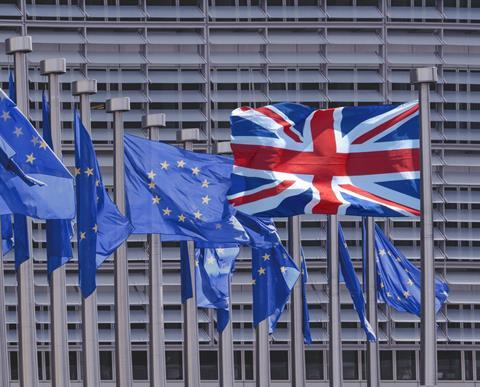Britain’s logistics sector expresses ‘cautious optimism’ over new UK-EU Northern Ireland trade agreement
The UK and the EU this week reached an “historic” agreement on Northern Ireland’s (NI) Brexit trade rules, ending months of intense negotiations.

Prime minister Rishi Sunak and EU Commission leader Ursula von der Leyen announced a new ‘Windsor framework’ – which will largely scrap the controversial NI protocol signed by Boris Johnson – in a joint press conference on Monday (27 February).
According to the BBC, the new agreement keeps Northern Ireland inside the EU’s single market for goods, which keeps the Irish land border open but means products arriving into Northern Ireland from the rest of the UK are subject to checks and controls.
At the heart of the deal is the so-called green lane and red lane system, which will help ease the flow of goods moving from Great Britain to Northern Ireland while reducing Irish Sea border checks.
British goods intended to stay in Northern Ireland will use the green lane at NI ports, which means they will require less paperwork and no burdensome checks. Other goods headed south of the border to the Republic of Ireland or other EU countries will use the red lane and will have to abide by the bloc’s strict regulations.
Logistics UK, which represents British logistics businesses, tentatively welcomed the new agreement after a meeting with the Prime Minister yesterday (28 February).
In a statement, Nichola Mallon, head of trade and devolved policy at Logistics UK, announced the group’s cautious optimism regarding the opportunity the Windsor Framework could provide to ease the passage of goods between Great Britain (GB) and Northern Ireland (NI).
“While our review of the details continues, Logistics UK is pleased to note several of our proposals and pragmatic solutions – such as green and red lanes, trade facilitation measures and parcel derogations – have been included within the agreement framework. While we are still communicating with members on their feedback, the initial response from those that transport goods between NI and GB has been positive,” she said.
“The devil will now be in the detail, and Logistics UK looks forward to working with members to see how this operates on the ground. As these changes come into effect, there will undoubtedly be challenges that this framework could not have predicted, and Logistics UK is urging the UK government and EU to continue their constructive engagement with industry, with clear and empowered mechanisms through which businesses can flag any issues so that swift, effective solutions can be found.”
Prime Minister Sunak on Monday said the Windsor Agreement delivered “smooth-flowing trade within the whole of the UK” and protected Northern Ireland’s place in the union, which would help “end the uncertainty”.
Meanwhile, Von der Leyen assured the same food would be available in Northern Ireland as in the rest of the UK, while outlining the “strong safeguards” that would protect the integrity of the EU’s single market.
One of the key issues for those most critical of the NI protocol was the involvement of the European Court of Justice (ECJ) in rules applying to trade in Northern Ireland, which Sunak and von der Leyen claim to have solved with the introduction of the “Stormont brake”.
This will give members of the legislative assembly (MLAs) a say over EU rules affecting Northern Ireland, and will apply to changes to EU customs, goods, and agriculture rules within the scope of the original protocol that NI currently abides by.
If they decide to “pull a brake” – oppose any EU rule – the UK government will have a veto.



